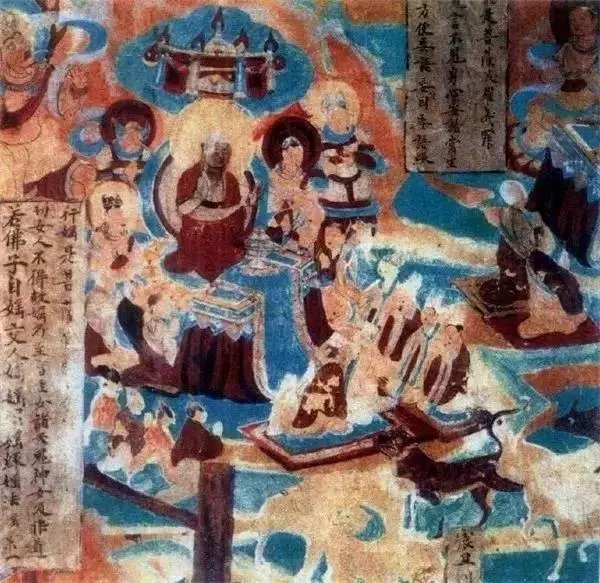Dunhuang grottoes adopt tech to attract tourists
- By Wu Jin
 0 Comment(s)
0 Comment(s) Print
Print E-mail China.org.cn, June 6, 2018
E-mail China.org.cn, June 6, 2018

Preservationists are using new high-tech approaches to sustain the ethereal beauty of the frescoes and Buddhist sculptures created inside the man-made caves excavated 1,652 years ago at the Dunhuang Mogao Grottoes, Gansu province.
The adoption of these new technologies is exemplified by Dunhuang Xiaoice, an interactive chatbot that serves as a tour guide for the site. Available 24 hours a day on the Chinese social media app WeChat, the service provides users with facts concerning the history of the arts and folklores of the grottoes as well as tourist information such as travel routes and visiting hours.
Dunhuang Xiaoice, jointly developed by Dunhuang Research Academy and Microsoft Research Asia, is attempting to make a balance between capacities of tourist visits and preservation efforts.
"It is supposed to spread the culture, history, tourism and academic research of Dunhuang through free chats," said Sun Zhijun, director of the internet division of Dunhuang Research Academy.
"Besides that, it can independently learn information about Dunhuang by searching online for articles concerning the grottoes to ensure the accuracy and timeliness of the answers it delivers, although it has already stored tens of thousands of questions and answers from references of the Dunhuang Encyclopedia," Sun added.
At the same time, 65 of the caves accessible for tourist visits have been equipped with sensors, enabling staff members to monitor changes in humidity, traffics and security via remote controls.
Algorithm is also in use to assist in the reception of tourists. On a day with 6,000 visitors, for example, 36 buses will be automatically dispatched to shuttle back and forth between the tourist site's digital exhibition center and the grottoes located 15 kilometers away.
Moreover, QR codes have been posted at 118 grottoes, and the remaining grottoes are set to be equipped with the QR codes at a later stage.
Although tourists are only allowed access to a maximum of 12 caves per visit, they can scan codes to view virtual representations of the other grottoes on their cellphones.
The Wi-Fi that blankets the entirety of the grottoes is protected by the password "19440101," which represents Jan. 1, 1944, the founding date of the Dunhuang Research Academy, then known as the State Art Research Institute of Dunhuang.
"We're expecting people to learn from Dunhuang's history and legacy, which have been passed downed from generation to generation, and the password is a good start," Sun said.






Go to Forum >>0 Comment(s)